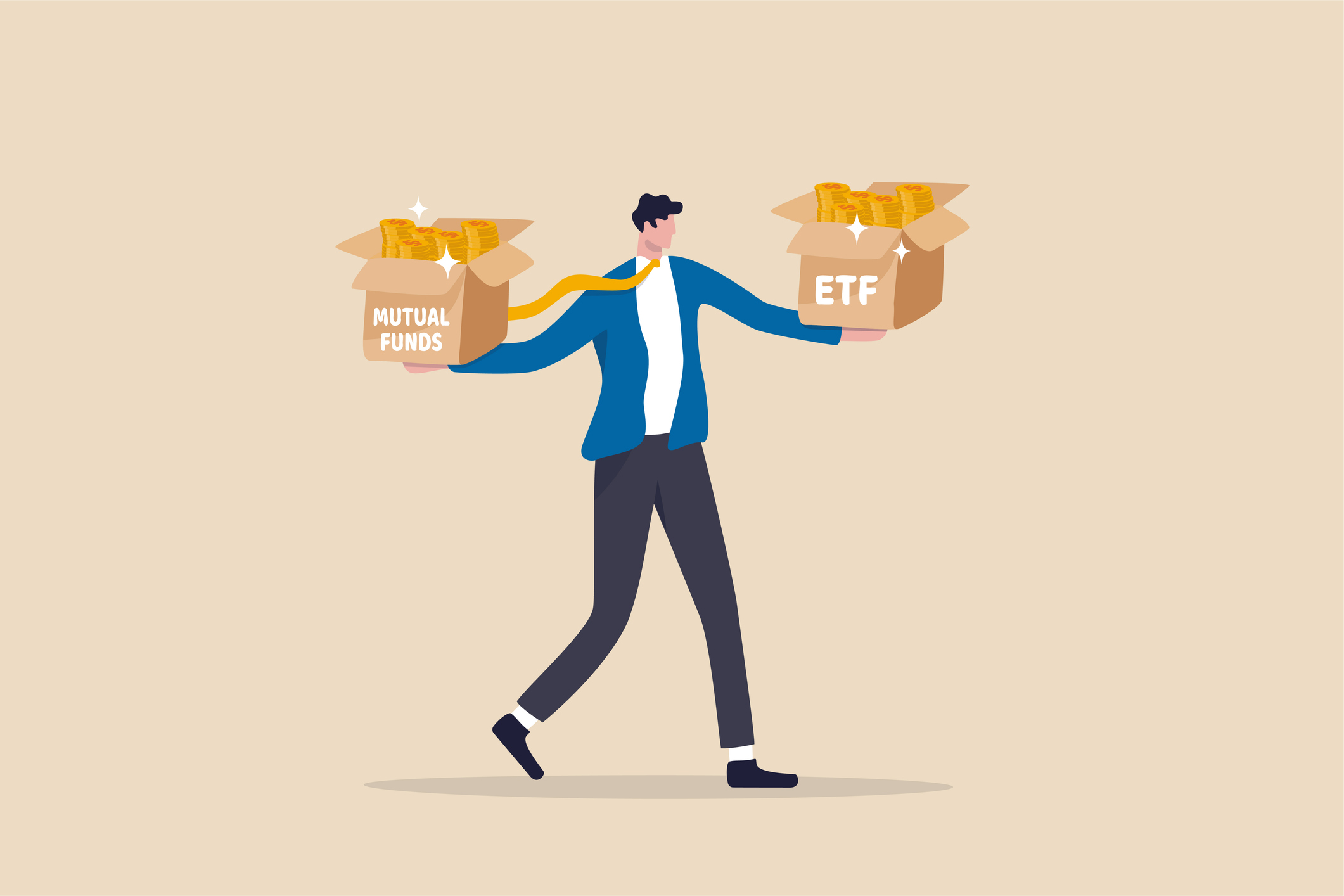Alternative Investments for the Rest of Us
These portfolio diversifiers aren't just for the wealthy.


It's not only music lovers who venture beyond the mainstream to tune in to alternative offerings. Main Street investors in search of diversifiers, shock absorbers and risk reducers for their portfolios should also consider owning a small sliver of alternative investments, or ones that differ from plain-vanilla asset classes such as stocks, bonds and cash.
Access to "alt" investments, such as hedge funds, private equity, venture capital and the like, is still restricted mainly to "accredited" investors, or wealthy investors who meet Securities and Exchange Commission requirements, such as having a net worth of more than $1 million (not including a primary residence) or annual income of more than $200,000 (or $300,000 including a spouse).
Alternative offerings available to accredited investors face less regulatory scrutiny (which means they have fewer investor protections). They also tend to include private companies and asset classes that don't trade on public exchanges and employ more-sophisticated strategies.
From just $107.88 $24.99 for Kiplinger Personal Finance
Become a smarter, better informed investor. Subscribe from just $107.88 $24.99, plus get up to 4 Special Issues

Sign up for Kiplinger’s Free Newsletters
Profit and prosper with the best of expert advice on investing, taxes, retirement, personal finance and more - straight to your e-mail.
Profit and prosper with the best of expert advice - straight to your e-mail.
For instance, private equity refers to investments in companies that aren't publicly traded. Hedge funds can use borrowed money to amplify returns, and they can sell stocks short, betting on a price decline, which gives them the ability to make money in down markets. Alternative investments are less liquid, which means they’re harder to buy and sell quickly. And they typically require a longer holding period to realize profits.
But you don't have to be an accredited investor to invest like one. Mom-and-pop investors can gain exposure to investments that mimic the strategies and performance of alt investments via exchange-traded funds and mutual funds.
"The industry is becoming more democratized," says Tom Kehoe, managing director and global head of research and communications at the Alternative Investment Management Association.
Consider alternative-type investments as a way to provide greater portfolio diversification, add protection in falling markets, cut down on volatility, and generate higher yields and more-predictable income streams. But limit alts to 10% to 20% of your overall portfolio, says David Jamison, a certified financial planner at Charles Schwab.
The investments below might be more arcane – and risky – than the stocks and bonds that form the core of your portfolio, but they are accessible and provide the benefits of alternatives. (Prices and other data are through Dec. 3.)
Commodities
Metals (such as gold and silver), energy (such as oil and gas) and agriculture assets (such as wheat and farmland) are investments that don't rise and fall in tandem with stocks and bonds – and they perform well in times of rising inflation.
One of the largest commodity ETFs is Invesco DB Commodity Index Tracking Fund (DBC, $20, expense ratio 0.85%), which uses futures contracts to track an index of 14 of the most heavily traded physical commodities. In the past year, the fund has gained 39.5%, topping 90% of its peers.
Convertible Bonds
Convertible bonds generate income via interest payments, and they come with the option to convert them into the common shares of the issuing company's stock. Owning such bonds provides a one-two punch: steady income plus the potential to capture a portion of the stock's capital appreciation. But having the option to convert to stock comes with a trade-off: you'll earn a little less in yield. Still, you'll get exposure to the stock market's upside with less downside risk.
A solid option is Calamos Convertible (CCVIX, 1.14%), which seeks lower-volatility exposure to stocks. (The actively managed fund carries a 2.25% front-end sales fee, but it is available on some platforms, including Charles Schwab and Fidelity, without the fee.)
Or consider a cheaper, index-based alternative, iShares Convertible Bond ETF (ICVT, $88, 0.20%).
Cryptocurrencies
Bitcoin, often dubbed digital gold, is an option for investors able to withstand wild price volatility.
In 2021, regulators approved the first futures-based ETF that tracks bitcoin. And although it doesn't invest directly in the largest cryptocurrency, ProShares Bitcoin Strategy ETF (BITO, $34, 0.95%) is a convenient way to bet on bitcoin without having to buy and sell it on a crypto exchange or use a crypto wallet to trade and store it.
Because bitcoin often endures massive price dives, limit your exposure to a tiny part of your portfolio and buy on big dips.
Preferred Stocks
Investors looking for consistent income can explore preferred stocks – hybrid securities that have both stock and bond characteristics and make regular dividend payments. Preferred shares yield more than common stocks and deliver payouts that are larger than most types of bonds, which is a plus in low-interest-rate environments.
iShares Preferred and Income Securities ETF (PFF, $38, 0.46%), which tracks an index of preferred securities, currently yields 4.5%. Preferred stock dividends are senior to those of common stocks, meaning they get paid first, but preferreds typically do not confer voting rights, as common stocks do.
The market value of preferreds can fluctuate, but they typically don’t appreciate at the pace of common stocks. And like bonds, preferreds can be sensitive to interest-rate swings.
Private Equity
Gaining exposure to private companies with growth potential is doable via ETFs that invest in private-equity companies.
You can also gain access to upstart private businesses early in their life cycle by buying shares of publicly traded private-equity companies and betting on asset managers such as Blackstone (BX, $135), the world's largest alternative asset manager and a member of the Kiplinger Dividend 15, the list of our favorite dividend stocks.
Other private equity asset managers include Apollo Global Management (APO, $70) and KKR & Co. (KKR, $74). Blackstone was an early backer and is a current investor in the dating app Bumble (BMBL), which went public in 2021, as well as Spanx, the women's wear brand.
Private-equity stocks have soared in 2021, so be on the lookout for a correction to buy. Investors who want broader exposure can purchase private-equity-specific ETFs, such as Invesco Global Listed Private Equity (PSP, $15, 1.44%).
Residential Real Estate
The housing market is hot, and supply remains tight.
Since the pandemic and the shift to working from home, "residential real estate has gotten a lot more exciting," says Ben Carlson, director of institutional asset management at Ritholz Wealth Management. The value of apartments and properties increase as rents go up and home values appreciate, making real estate a hedge against inflation.
Not everyone has what it takes to be a landlord. But you can gain exposure to residential real estate via a real estate investment trust (REIT), such as iShares Residential and Multisector Real Estate ETF (REZ, $91, 0.48%).
Top holdings include owners of apartment buildings like AvalonBay Communities (AVB); companies specializing in leasing homes such as Invitation Homes (INVH); and outfits that own manufactured homes and recreational vehicle resorts including Sun Communities (SUI). The fund has gained 38.4% in the past year, topping 89% of its peers.
Profit and prosper with the best of Kiplinger's advice on investing, taxes, retirement, personal finance and much more. Delivered daily. Enter your email in the box and click Sign Me Up.

Adam Shell is a veteran financial journalist who covers retirement, personal finance, financial markets, and Wall Street. He has written for USA Today, Investor's Business Daily and other publications.
-
 Dow Adds 646 Points, Hits New Highs: Stock Market Today
Dow Adds 646 Points, Hits New Highs: Stock Market TodayIt was "boom" for the Dow but "bust" for the Nasdaq following a December Fed meeting that was less hawkish than expected.
-
 5 Types of Gifts the IRS Won’t Tax: Even If They’re Big
5 Types of Gifts the IRS Won’t Tax: Even If They’re BigGift Tax Several categories of gifts don’t count toward annual gift tax limits. Here's what you need to know.
-
 The 'Scrooge' Strategy: How to Turn Your Old Junk Into a Tax Deduction
The 'Scrooge' Strategy: How to Turn Your Old Junk Into a Tax DeductionTax Deductions We break down the IRS rules for non-cash charitable contributions. Plus, here's a handy checklist before you donate to charity this year.
-
 3 Major Changes Investors Must Prepare for in 2026
3 Major Changes Investors Must Prepare for in 2026A possible stock market bubble. Trump accounts. Tokenized stocks. These are just three developments investors need to be aware of in the coming months.
-
 Government Shutdown Puts IPO Resurgence at Risk
Government Shutdown Puts IPO Resurgence at RiskThe IPO market has been sizzling in recent months, but the government shutdown threatens to put a short-term halt to public offerings. Here's why.
-
 The Most Tax-Friendly States for Investing in 2025 (Hint: There Are Two)
The Most Tax-Friendly States for Investing in 2025 (Hint: There Are Two)State Taxes Living in one of these places could lower your 2025 investment taxes — especially if you invest in real estate.
-
 The Final Countdown for Retirees with Investment Income
The Final Countdown for Retirees with Investment IncomeRetirement Tax Don’t assume Social Security withholding is enough. Some retirement income may require a quarterly estimated tax payment by the September 15 deadline.
-
 Mutual Funds Are About to Get the ETF Treatment. Here's What It Means for Investors
Mutual Funds Are About to Get the ETF Treatment. Here's What It Means for InvestorsThe SEC is expected to decide soon whether mutual funds from dozens of providers can be offered as ETF share classes.
-
 SEC Cracks Down on Misleading Fund Names: The Kiplinger Letter
SEC Cracks Down on Misleading Fund Names: The Kiplinger LetterThe Kiplinger Letter The SEC rules aim to crack down on so-called “greenwashing” — misleading or deceptive claims by funds that use ESG factors.
-
 Bond Basics: Zero-Coupon Bonds
Bond Basics: Zero-Coupon Bondsinvesting These investments are attractive only to a select few. Find out if they're right for you.
-
 Bond Basics: How to Reduce the Risks
Bond Basics: How to Reduce the Risksinvesting Bonds have risks you won't find in other types of investments. Find out how to spot risky bonds and how to avoid them.